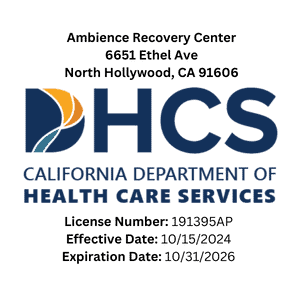Ketamine: Understanding Its Risks
Ketamine is a dissociative anesthetic primarily used in medical and veterinary settings. It’s classified as a Schedule III substance, indicating its potential for abuse and addiction. While it has therapeutic uses, ketamine is also widely misused recreationally, often referred to as “Special K.” Misuse can lead to serious health concerns, including addiction. This article explores the side effects of ketamine abuse, the risks of addiction, and treatment options to help individuals regain control over their lives.
What is Ketamine (Special K)?
Ketamine is a medication commonly used for anesthesia during surgeries or to relieve chronic pain. Its dissociative properties allow patients to detach from pain and discomfort. However, recreational users often seek its hallucinogenic effects, which can produce altered perceptions of reality.
In recreational settings, ketamine is abused in high doses to achieve a sense of euphoria and disconnection. Unfortunately, repeated misuse can lead to serious mental, physical, and social consequences, including dependence and addiction.
The Side Effects of Ketamine Abuse
Short-Term Effects of Ketamine Use
When taken in small or moderate doses, ketamine can cause:
- Dissociation: Users may feel detached from themselves or their surroundings.
- Hallucinations: Visual and auditory distortions are common.
- Increased heart rate and blood pressure.
At higher doses, the risks become more severe:
- Impaired motor function and difficulty speaking.
- Confusion, dizziness, and nausea.
- “K-Hole,” a state of extreme dissociation and immobility, which can be terrifying.
Long-Term Effects of Ketamine Abuse
Prolonged use of ketamine has lasting consequences, including:
- Cognitive Issues: Memory loss, impaired learning abilities, and reduced attention span.
- Mental Health Problems: Chronic anxiety, depression, and even psychotic symptoms.
- Physical Health Concerns: Damage to the bladder and kidneys, known as ketamine bladder syndrome, leading to pain and difficulty urinating.
- Social Effects: Strained relationships, job loss, and financial difficulties due to drug dependence.
Understanding Ketamine Addiction
How Does Addiction to Ketamine Develop?
Ketamine affects dopamine levels in the brain, reinforcing feelings of euphoria. Over time, users develop tolerance, needing higher doses to achieve the same effects. This cycle often leads to psychological dependence and addiction.
Signs of Ketamine Addiction
Recognizing addiction early is critical. Signs include:
- Intense cravings for the drug.
- Continued use despite negative consequences.
- Withdrawal symptoms, such as agitation, fatigue, and cravings when not using ketamine.
Risks of Mixing Ketamine with Other Substances
Combining ketamine with other drugs or alcohol significantly increases the risk of adverse effects. Alcohol, for instance, enhances ketamine’s sedative properties, increasing the likelihood of overdose. Other substances, such as stimulants or opioids, create unpredictable and dangerous interactions.
Options for Ketamine Abuse and Addiction Treatment
Recovering from ketamine addiction is possible with comprehensive treatment.
Medical Detoxification
Medical detox involves managing withdrawal symptoms under professional supervision. It ensures a safe and comfortable start to recovery.
Therapeutic Interventions
- Cognitive Behavioral Therapy (CBT): Helps individuals identify and change patterns that contribute to substance abuse.
- Group Therapy: Provides a support network of peers going through similar struggles.
- Medication-Assisted Treatment: Addresses co-occurring mental health disorders, such as depression or anxiety, often linked to addiction.
Long-Term Recovery Support
Ongoing support is essential to prevent relapse. Programs like aftercare planning, peer support groups, and lifestyle adjustments help individuals maintain their sobriety.
Conclusion
Ketamine abuse can lead to severe physical, psychological, and social consequences. However, with proper treatment, recovery is achievable. If you or someone you know is struggling with ketamine addiction, seek help today. Call Ambience Recovery at 866-721-7470 to take the first step toward a healthier, addiction-free life.
FAQs About The Dangers of Ketamine’s Negative Side Effects
What are the main side effects of ketamine abuse?
Ketamine abuse can cause hallucinations, memory issues, bladder problems, and long-term mental health conditions.
Is ketamine addictive?
Yes, repeated ketamine use can lead to psychological dependence and addiction.
How dangerous is mixing ketamine with alcohol?
Mixing ketamine with alcohol heightens the sedative effects, increasing the risk of overdose and other severe health complications.
What are the treatment options for ketamine addiction?
Treatment includes medical detox, therapy (like CBT), and long-term recovery programs.
What is ketamine bladder syndrome?
Ketamine bladder syndrome causes pain and difficulty urinating, often resulting from prolonged ketamine use.
Resources
https://www.dea.gov/factsheets/ketamine
https://adf.org.au/drug-facts/ketamine/
Katie is a Licensed Clinical Social Worker who has worked as a primary therapist, supervisor, and now clinical director for SUD/MH treatment centers for the past 12 years. Katie is trained in Brainspotting, EMDR, Internal Family Systems and Dialectical Behavior Therapy and is passionate about treating substance use disorders, trauma and grief.






